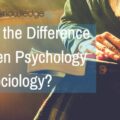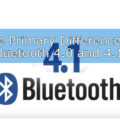
Philosophy is a very complex subject, and if you are a student wondering what the difference is between ontology vs. epistemology, you are not alone.
If you look these words up online, and you are new to philosophy, you may be confounded by explanations that seem to be more complex than the answer you are seeking.
If we break down these two terms into simple concepts, the understanding can become easier. So, let’s get started.
Why Do We Need to Understand Ontology vs Epistemology?
Let’s get real.
In today’s age of tweets and YouTube videos, finding real dialogue about philosophical issues can be difficult. If you don’t put an “LOL” or “OMG” with an emoticon at the end of your message, or your paragraph is (gasp) longer than a sentence, many people will tune out.
We live in a dumbed down world.
So, no, you don’t really need to understand ontology vs. epistemology, except by doing so, you will be smarter than the average person and have a more in-depth understanding of the universe.
And that’s pretty neat. LOL. (smiley face)
Let’s Talk Existence and Knowledge
Both ontology and epistemology are concerned with knowledge. The end of these words “ology” comes from logos. “Logos” means study in Greek, as well as related meaning such as “word” or “discourse.”
Ontology comes from “ontos” meaning being and logos. Epistemology comes from episteme meaning “knowledge.”
Therefore, ontology is the study of being. Epistemology is the study of knowledge.
Ontology: Does It Exist? What is It?
Ontology wants to answer those big questions about the universe. What is this universe we are in. Does God exist? What is existence?

Ontology can also be used for practical things such as: Is there a disease process that is affecting people with certain symptoms? How do we identify and group this new species we have discovered?
Epistemology: How Do We Know It Exists?
Epistemology deals with how we use our reason and/or experience to understand and know things.
For example, how Eastern and Western medicine have developed their bodies of knowledge is very different. Western medicine uses a lot of studies and tries to use scientific reasoning and approaches to determine what diseases are and how to treat them.

In the Eastern medical science from India, Ayurveda (which means “Science of Life”), some of the knowledge was originally developed thousands of years ago by ancient rishis (saints or seers) who supposedly figured out the laws of the universe through intuition and divine inspiration.
You might think that the Western approach is better, but a good philosopher could question that. Is using scientific “reasoning” better? What if our very perceptions that underlie the scientific method are flawed?
Epistemology questions things like reason vs. experience (and intuitive experience) and how people can agree on various types of knowledge. Can reason function independently from experience? How do we know that we know
Ontology vs. Epistemology: Is It a Conflict?
There actually isn’t a conflict between ontology and epistemology. The two philosophical approaches can overlap or even support one another.
Let’s look at the big question of God. Is there a God?
The basic question “does God exist?” is an ontological question.
How we answer that question is epistemology.
For example: One way to look at the question of God is to use reason. Some people will use reason to justify a God and others to justify atheism.
Another way to look at the question is through experience. Someone who has had a mystical experience will use their experience as the basis to answer the question: Is there a God?
A person who feels they have had the experience of God does not need or care about “reason” because they feel their actual experience has answered the question.
Is Reason the End All and Be All?
It might be tempting to place reason above experience. However, many great thinkers have questioned the prominence of reason in our modern-day age.
One such thinker and writer was G.K. Chesterton, a devout Catholic, who, in his book Orthodoxy, explains that reason can be used most effectively by madmen to justify any sort of insanity.
“Reason is itself a matter of faith. It is an act of faith to assert that our thoughts have any relation to reality at all,” said Chesterton.
The question as to whether reason is a good basis for knowledge is an epistemological one. Questioning whether our thoughts are real in the first place would be an ontological question.
Are You Confused Yet?
It’s OK. Understanding the difference between ontology vs epistemology can be challenging, especially if you have never heard the terms before. However, by taking the time to understand what we know and why we know it, we can be more conscious participants in the world.












Leave a Reply